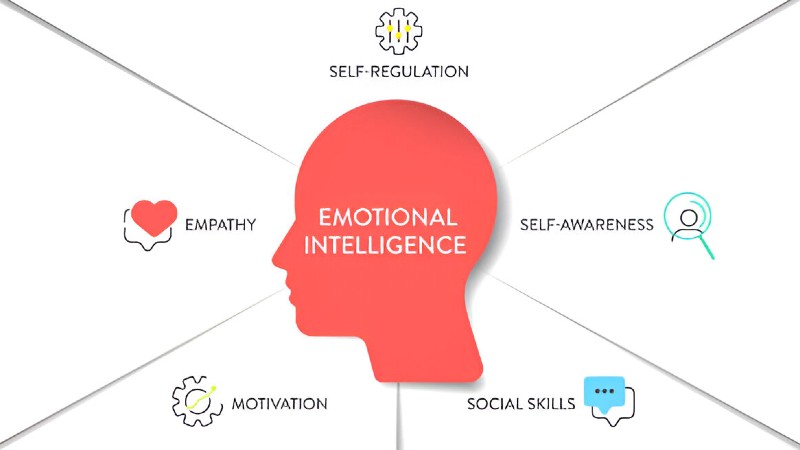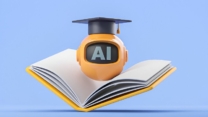
The Role of Emotional Intelligence in Student Success
Emotional intelligence (EI) has emerged as a pivotal factor in student success, influencing not only academic achievement but also personal development, social relationships, and long-term career readiness. While traditional education often emphasizes cognitive intelligence, research increasingly shows that students who understand and manage their emotions effectively gain a substantial edge in learning and life.
What is Emotional Intelligence?
Emotional intelligence refers to the ability to perceive, understand, regulate, and apply emotions in oneself and others. It is typically divided into four core components:
- Self-awareness: Recognizing one’s own emotions and their impact on thoughts and behavior.
- Self-regulation: Managing emotions effectively, maintaining composure under stress, and responding thoughtfully.
- Social awareness: Understanding and empathizing with the emotions of others.
- Relationship management: Building positive interactions, resolving conflicts, and inspiring collaboration.
While these abilities are valuable in everyday life, their impact on educational outcomes is profound and measurable.
Why Emotional Intelligence Matters in the Classroom
Research consistently demonstrates a strong link between emotional intelligence and academic success. Students with higher EI scores:
- Exhibit better focus and engagement in learning activities.
- Manage stress and anxiety during exams and assignments.
- Develop strong interpersonal relationships with teachers and peers.
- Demonstrate resilience in the face of academic challenges.
For example, a student who feels anxious about a math test can employ self-regulation strategies to calm down, focus on problem-solving, and avoid performance anxiety that might lower their score. Similarly, empathy skills allow students to collaborate effectively in group projects, enhancing both learning and social cohesion.
Emotional Intelligence Across Academic Levels
High School Students
During adolescence, students face significant emotional and social changes. Emotional intelligence helps them navigate peer pressure, maintain motivation, and manage stress. For instance:
- High EI students recover more quickly from low grades.
- They participate actively in class discussions, improving comprehension.
- They form supportive peer networks that reinforce learning.
University Students
At the tertiary level, students encounter greater academic and social independence. EI plays a crucial role in:
- Reducing levels of anxiety and depression.
- Enhancing adaptability in complex academic environments.
- Fostering networking and mentorship opportunities with professors and peers.
Long-Term Career Implications
Beyond academia, emotional intelligence predicts workplace success. Employees with high EI:
- Excel in leadership and team-based roles.
- Navigate workplace conflicts constructively.
- Maintain high job satisfaction and overall well-being.
In essence, emotional intelligence is not just an academic tool; it is a lifelong skill that contributes to professional and personal success.
Fresh Perspectives on Emotional Intelligence in Learning
While EI has been traditionally associated with stress management and interpersonal skills, emerging research highlights two less-explored areas:
1. Enhancing Cognitive Flexibility
Students with high EI are better at switching between different types of thinking, known as cognitive flexibility. For instance, a student studying literature may switch from analytical thinking to empathetic interpretation to fully understand a character’s motivation. This flexibility enhances problem-solving and creativity across subjects.
2. Improving Metacognitive Skills
Metacognition is the ability to reflect on one’s own learning process. High EI students are more likely to:
- Assess their understanding accurately.
- Identify areas needing improvement.
- Adopt effective study strategies based on emotional and cognitive insights.
These skills directly contribute to improved academic performance and self-directed learning.
Evidence-Based Benefits of Emotional Intelligence
Several studies highlight the measurable impact of emotional intelligence on academic outcomes. Consider the following table summarizing key findings:
| Study | Population | Key Findings |
|---|---|---|
| MacCann et al., 2019 | 42,000 students, 27 countries | Higher EI predicts better grades and standardized test scores, independent of IQ and personality |
| Brackett et al., 2006 | High school students | Social-emotional learning programs improve academic engagement and classroom behavior |
| Raver & Knitzer, 2002 | Elementary students | Empathy and social awareness interventions enhance interpersonal relationships and learning outcomes |
Practical Strategies to Develop Emotional Intelligence in Students
Developing EI is a gradual, intentional process. Educators and students can employ several strategies:
1. Self-Awareness Activities
- Keep a daily emotion journal to track feelings and triggers.
- Reflect on classroom interactions and personal reactions.
- Engage in mindfulness practices to observe thoughts without judgment.
2. Teaching Self-Regulation
- Incorporate breathing exercises or short meditations before tests or stressful activities.
- Use role-play to practice handling challenging emotional scenarios.
- Encourage goal-setting and progress tracking for academic and personal tasks.
3. Social Awareness and Empathy
- Facilitate group discussions that explore diverse perspectives.
- Encourage peer mentoring and collaborative projects.
- Model empathy in teacher-student interactions.
4. Relationship Management
- Teach conflict resolution and negotiation skills.
- Provide opportunities for students to lead projects or mediate group challenges.
- Promote classroom activities that reward cooperation and teamwork.
Real-World Example
Consider Maya, a university student struggling with public speaking anxiety. Through self-awareness exercises, she identifies that her anxiety peaks before presentations. She practices mindfulness and visualization techniques to calm herself. Additionally, she engages in group activities to improve her social awareness and empathy, enhancing collaboration with peers. Over time, Maya becomes a confident speaker, demonstrating how emotional intelligence transforms academic challenges into growth opportunities.
Key Takeaways
- Emotional intelligence predicts academic performance across all educational levels.
- EI enhances cognitive flexibility and metacognitive skills, contributing to deeper learning.
- Developing EI requires intentional strategies and supportive classroom culture.
- Students with high EI demonstrate resilience, social competence, and lifelong adaptability.
Conclusion
Emotional intelligence is more than a soft skill. It is a measurable, actionable factor that significantly impacts student success. By fostering self-awareness, self-regulation, social awareness, and relationship management, students can achieve higher academic performance, build stronger interpersonal relationships, and develop resilience that serves them throughout life.
For educators, integrating EI into classroom practice is essential. Evidence-based strategies, from journaling and mindfulness to empathy exercises and collaborative projects, create a learning environment where emotional intelligence and academic achievement reinforce each other. Ultimately, students equipped with strong EI are not only academically successful but also emotionally resilient, socially competent, and prepared for lifelong success.
Frequently Asked Questions (FAQs)
What is emotional intelligence for students?
Emotional intelligence (EI) is the ability to recognize, understand, and manage emotions both your own and others’. In school, it supports focus, resilience, and healthy relationships.
How does EI improve academic performance?
High EI helps students regulate test anxiety, persist after setbacks, collaborate effectively, and apply empathy in subjects like literature and history contributing to higher grades and engagement.
Is EI different from IQ?
Yes. IQ reflects cognitive ability, while EI reflects emotional and social skills. Both matter, but EI uniquely supports motivation, self-regulation, and teamwork key drivers of classroom success.
What are quick ways to build EI in the classroom?
Try emotion check-ins, short breathing exercises, reflection journals, peer feedback protocols, and explicit instruction in conflict resolution and active listening.
Can emotional intelligence be measured?
Yes. Educators can use validated self-report and ability-based tools, plus observation rubrics that track progress in self-awareness, empathy, and relationship skills.
Does EI help beyond school?
Absolutely. EI supports leadership, teamwork, customer communication, and stress management skills that enhance employability and long-term well-being.












